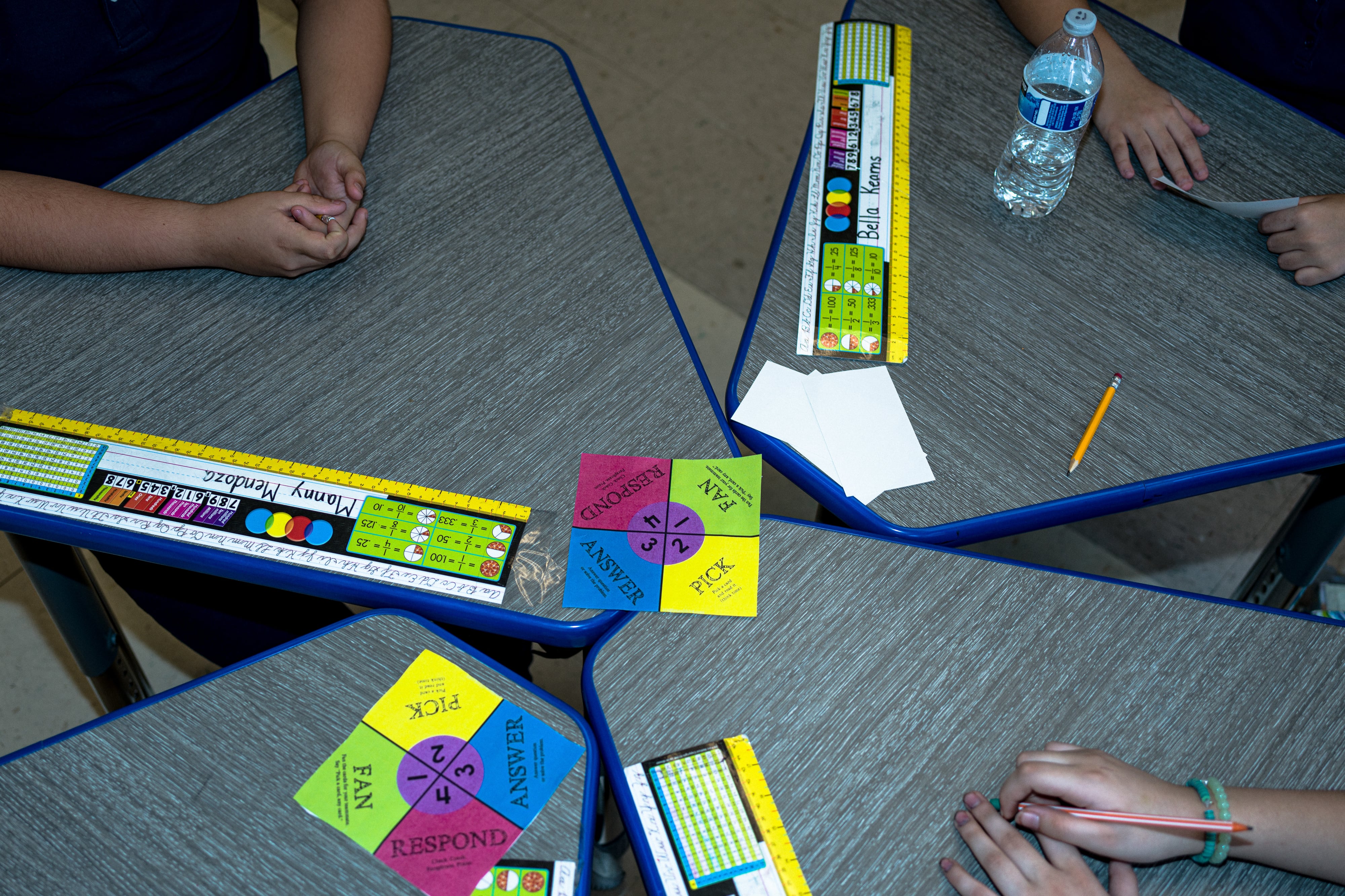The Indiana Department of Education has offered an early look into its priorities for the upcoming legislative session, which include nearly doubling the funding for teaching English language learner students.
Secretary of Education Katie Jenner on Wednesday presented the department’s requests to the State Budget Agency, which makes a recommendation to the governor on the state’s biennial budget ahead of the start of the session in January.
The requests did not cover any changes to the K-12 funding formula — which Jenner said would be announced in tandem with Gov. Eric Holcomb — but instead focused on funding specific programs.
The department’s largest itemized ask is a $45 million increase in funding for English learners over the biennium, for a total budget request of $100 million.
The increase would nearly double the current budget of $55 million, which Jenner said is necessary not only due to the growth in the English learner population, but also due to evidence that the group’s test scores have continued to decline after COVID even as other student groups recover. Indiana’s English learner population has increased by 52% over the last five years.
A shortage of teachers for English learners, which school districts have attributed to funding gaps, and a decline in the number of interested candidates are among the issues.
Jenner said that in addition to the funding request, the department would seek to change the name of the fund from the “Non-English Speaking Program” to the “Indiana English Support Program.” The fund is allocated separately from the state’s K-12 funding formula.
Jenner said the department would work with Holcomb and state lawmakers to determine how to adjust the K-12 funding formula based on state revenue projections, set to be released this month. Lawmakers have said they expect to increase K-12 funding, as well as funding for school choice voucher programs.
“As soon as I lay my eyes on that report, I’m going to be as aggressive as you can imagine to get that money into education,” Jenner said.
The department is further asking for a $10 million increase for special education excess costs, which cover services for students with severe disabilities and are separate from the special education grants in the K-12 funding formula. The total budget request for this item is $58 million.
Several literacy initiatives are also part of the department’s ask. It seeks $20 million over the biennium to offer performance incentives to schools based on the number of students who pass the third grade reading test, called IREAD-3.
It’s also requesting a one-time $10 million allocation toward literacy efforts announced this summer, which the Lilly Endowment will match.
The 2023 session begins on Jan. 9.
Having trouble viewing this survey, go here.
Aleksandra Appleton covers Indiana education policy and writes about K-12 schools across the state. Contact her at aappleton@chalkbeat.org.








